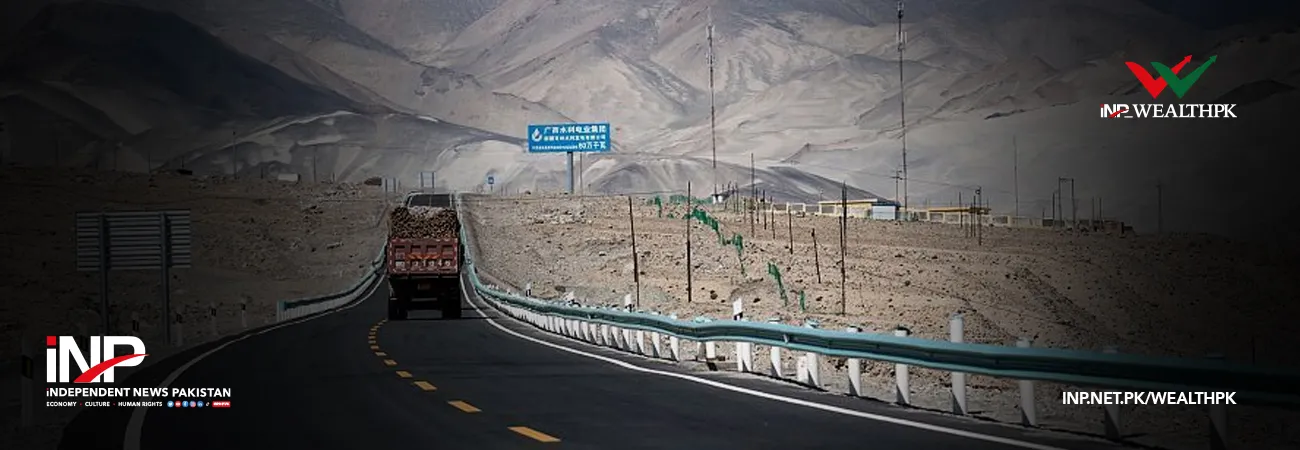INP-WealthPk
Qudsia Bano
The much-touted India-Middle East-Europe Economic Corridor (IMEC) has drawn global attention for its potential to enhance economic connectivity across the continents. However, amid discussions dominated by geopolitical considerations, it is imperative to delve into the challenges confronting the IMEC as well as any opportunities it offers for fostering global infrastructure cooperation. Talking to WealthPK, Dr. Sajid Amin Javed, Deputy Executive Director and founding head of the Policy Solutions Lab at the Sustainable Development Policy Institute (SDPI), said, “The IMEC faces a multitude of formidable challenges that merit examination. Firstly, geopolitical complexities cast a long shadow over the corridor. As it traverses regions replete with geopolitical tensions and conflicts, particularly in the Middle East, these complexities have the potential to disrupt the smooth functioning of the corridor, instigating uncertainties among investors and businesses.
“Secondly, the establishment of necessary infrastructure for the IMEC represents an enormous undertaking. This endeavor necessitates substantial investments in the development of roads, railways, ports, and logistical networks, further complicated by the challenges associated with financing and coordination of such a massive project. “Thirdly, differing legal and regulatory systems across the participating countries have the potential to give rise to bureaucratic entanglements and legal disputes, thus hindering the ease of conducting business along the corridor. “Fourthly, the IMEC passes through regions characterized by varying degrees of security threats, including piracy and terrorism. Ensuring the safety of goods and individuals during transit is a paramount concern”. Sajid said the development of an extensive infrastructure along the corridor raised concerns about its environmental impact.
“Striking equilibrium between development and environmental conservation is an imperative that cannot be overlooked. Lastly, the nations participating in the IMEC may harbor divergent economic, political, and strategic interests. The coordination of these disparate interests, along with ensuring equitable distribution of benefits, poses a significant challenge,” he added. According to Ali Kemal, Chief Economist at the SDG Support Unit, Ministry of Planning, Development and Special Initiatives, the IMEC presents a unique opportunity for countries and international organizations to engage in multilateral collaboration aimed at addressing shared infrastructure challenges. Multilateral institutions can facilitate effective coordination, financing, and dispute resolution, thereby contributing to the overall success of the corridor, he opined. Ali said by adhering to the international environmental standards and championing sustainable practices, the IMEC can emerge as a model of environmentally responsible infrastructure development.
Such an approach aligns with the global initiatives to combat climate change and mitigate environmental degradation. Talking to WealthPK, Dr. Hasan Daud Butt, former project director of China Pakistan Economic Corridor (CPEC), said the proposed IMEC had understandably raised concerns in Pakistan, particularly about the China-Pakistan Economic Corridor (CPEC); however, it’s essential to recognize that the CPEC can still maintain its significance and contribute to Pakistan’s future prosperity, even in the context of the IMEC cooperation. He said, “The CPEC remains a vital component of China’s Belt and Road Initiative (BRI), and its strategic importance is unlikely to pale into insignificance. It serves as a key gateway for China to access the Arabian Sea and beyond, providing an alternative route to the volatile South China Sea. This geostrategic significance ensures that the CPEC will continue to receive attention and investment.
“Moreover, the CPEC has already made substantial progress in infrastructure development, energy projects, and establishment of industrial zones. These initiatives have the potential to transform Pakistan’s economy, create jobs, and boost trade. As these projects mature, they will contribute significantly to Pakistan’s economic growth.” In terms of foreign investment, the CPEC has attracted long-term substantial commitments from China to Pakistan’s economic development. This commitment extends beyond infrastructure to include education, technology transfer, and human resource development. These investments will continue to bolster Pakistan’s economy and enhance its global competitiveness, according to Dr Hasan.
Credit: INP-WealthPk













